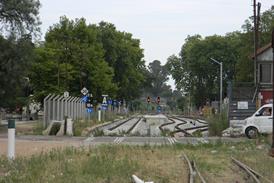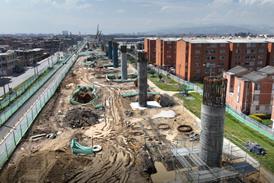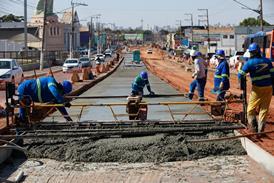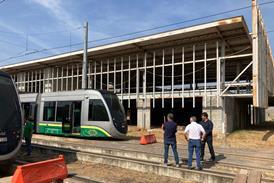ON MARCH 4 French National Railways ordered 10000 staff out on to the tracks to look for bombs following threats from an unknown group called AZF. Letters to the Interior Ministry last December were followed by a ransom demand in February.
AZF alerted the authorities to a bomb in the trackbed at Folles near Limoges, and on February 21 a device was found and disabled. Negotiations continued, but attempts to pay the ransom failed. Details of the plot were published in a newspaper on March 3, helping to trigger SNCF's decision to search its 30000 km network - track workers and others were detailed to check 8 km sections.
The state of alert under the Vigipirate security plan was increased, SNCF managers accompanied drivers in the cab on many services, and sensitive locations including tunnels and viaducts were put under surveillance. After 24h SNCF said that nothing had been found, noting that trains had run normally throughout the process.
The AZF story was quickly forgotten on March 11 when 10 bombs concealed in rucksacks exploded within a few minutes on four suburban trains in Madrid during the morning rush hour, killing over 200 people and injuring over 1400. Three bombs went off at Atocha, four on the approach routes, one at Santa Eugenia and two atEl Pozo; three other bombs were found and destroyed. Services into Atocha were suspended, but Spanish National Railways had around 80% of Madrid suburban trains running again next day.
The carnage in Madrid prompted reviews of security on rail and public transport services worldwide. In London there were suggestions that airline-style baggage searches should be introduced at stations, as on Eurostar, but these were rightly rejected as impractical. In France, surveillance was stepped up at major stations in Paris and other interchanges, and TGVs were patrolled by the police or armed forces.
We reported last month that UITP had highlighted an increase in terrorist attacks on public transport (RG 3.04 p132). It is clear that railways will always be vulnerable, and metro and main line operators are well aware of this. Recent efforts to share intelligence and information included the International Metro Transport Security Summit in London during the second week of March.
Before operators are obliged to spend heavily on additional security measures, we endorse the UITP's statement that 'it is state governments who have the primary responsibility for combating terrorist actions'. This is certain to be up for discussion at UITP's conference on security in public transport being held in Genève in June (p202).




















